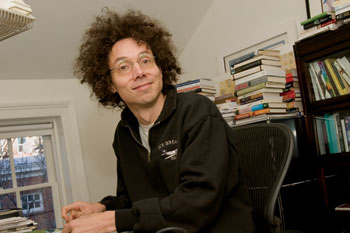Good news: Tkacik’s back; Bad news: We’re fucked, says Tkacik

Moe Tkacik–the Moe who hasn’t joined the Tea Party–takes New Yorker staff writer Peter Boyer to the woodshed over his lying profile of the lunatic monstrosity that is The Family. Boyer’s article, an unlikely piece of hack inside-jobbery, basically exists to quell the rumors you may have heard about The Family–that they’re a secretive sect of influence-dealing theocrats, that they’re genocide-friendly, that they’ve got a kind of perpetual hard-on for dictators and fascists, that they hate women, that they are the force behind the Ugandan gay death penalty legislation, and that for one reason or another are probably actively plotting your death right now–all of which are pretty much true. I remember reading the Boyer piece whenever it came out (a week or two ago?) with a growing sense of cognitive dissonance and a slowly rising gorge. Everything about the piece is inexcusable, beginning with the existence of the organization being profiled. It’s heartening–but also induces further rage–to read such an incisive and thorough response, and Moe Tkacik is not only the best person for the job, she’s pretty much the only person who would bother to do it. Lucky us! Speaking of which, this piece appears on Das Krapital, Moe’s new gig as a daily blogger for the Washington City Paper. You should also check out her piece on “Why the Right Hates Freedom“, and basically be reading this blog every day. Expect to hear about it again. Also, check out Jeff Sharlet’s blog.
Standing Ovation For Maureen Tkacik’s “Gladwell for Dummies”

What, me huckster?
Tkacik’s indictment of Gladwell is incisive, epic, merciless, and right. It runs a full seven web pages and is worth reading every word. Now, the next time you see someone reading Blink and reflexively go to slap it out of their hand, you’ll be able to explain why you did it. Here’s a choice gleaning from fairly late in the piece. Click through to start at the beginning.
Also, it’s worth looking at this piece in light of this website’s ongoing discussion of what good criticism can or should look like. The piece is occasioned by the publication of Gladwell’s new book, Outliers, but it could hardly be considered a mere “review” of that book. And yet, it’s not a NY/LRB-style essay, where the book(s) provide a sort of anchor for a larger discussion about something else. Tkacik seems completely at ease in Gladwell’s catalogue, moving with an apparent lack of effort through and between his books. She has a clear thesis that is developed, amplified, and otherwise nuanced over the course of the essay. A writer who disagrees vehemently with Tkacik’s thesis and all her supporting arguments–or a writer who couldn’t care less about Gladwell one way or the other–still has a lot to gain from reading this essay. It’s a stand-out example of a particular kind of long-form criticism.
November 7th, 2009 / 3:45 pm
Your Very Non-V-Day V-Day Roundup

This will be as mushy as it gets.
At The Fanzine, Jeff Johnson considers Ben Lerner’s Mean Free Path.
Dennis Cooper hosts the official online launch of Mark Gluth’s The Late Works of Margaret Kroftis. I have yet to hear anything but the best about this book.
Because we love Roger Ebert now, we are interested in his review of Valentine’s Day.
“Valentine’s Day” is being marketed as a Date Movie. I think it’s more of a First-Date Movie. If your date likes it, do not date that person again. And if you like it, there may not be a second date.
Also, did you know that Ebert wrote a book called Your Movie Sucks ?
William Deresiewicz on Tolstoy at The Nation. (I’ve become such a committed Deresiewicz reader I can now type his last name without having to check the spelling first–I check after, and I’m usually right. This goes for you, too, Moe Tkacik.)
NYTea Time: Dominique Browning is quite taken with Cathleen Schine’s The Three Weissmanns of Westport. She locates the book in the updated-Austen trend, but hastens to identify a crucial distinguishing feature: “The strange thing about the Jane brigade is that most of its practitioners have raided only her plots, apparently not quite up to the task of honoring the essence of Austen. But Schine’s homage has it all: stinging social satire, mordant wit, delicate charm, lilting language and cosseting materialistic detail.” Hey, there’s a new Peter Handke book! And Adam Haslett wrote a novel! About the financial crisis! Michiko Kakutani did not like Union Atlantic–-but that was on a Monday; Liesl Schillinger likes it quite a lot today. What else? Jon Caramanica looks at a couple of rock & roll books; Catherine Rampell on the interesting-looking academic-ish-seeming, Capitalism and the Jews by Jerry Z. Muller; Dahlia Lithwick on death row lawyer David R. Dow’s memoir, Autobiography of an Execution; and Todd Pruzan makes my weekend.
Happy Sunday!
Let’s Get Baffled!
 Moe Tkacik’s “Journals of the Crisis Year” is now live at The Baffler‘s website. Tkacik considers a baker’s dozen books about (and/or by players in) the Recent Financial Crisis.
Moe Tkacik’s “Journals of the Crisis Year” is now live at The Baffler‘s website. Tkacik considers a baker’s dozen books about (and/or by players in) the Recent Financial Crisis.
“From time immemorial,” Tett explains, “the worlds of business and finance have been beset with the problem of default risk, the danger that a borrower will not repay a loan or bond.” This is frustrating to read if you think of this lingering “problem” as a bank’s fundamental reason for being.
This is a long piece that demands and deserves your full attention. It will make you aware of things that you ought to be aware of. Also, while we’re at it–Holy Shit! The Baffler! I always thought of them as that small, weird journal whose publication schedule never made sense to me, but thanks to Moe’s piece I’m now looking at their front page and am thoroughly thrilled. Matt Taibbi, Christine Smallwood, Walter Benn Michaels. And I guess if/when the actual issue comes out (is out?) there’s also Naomi Klein and Lydia Millet in the paper version.

It’s Career Day at Gawker. Today we learn about how to be a “literary manboy.” I was happily/worriedly checking off boxes when I realized I’m still a good nine years below the beginning of the designated age range (36-45). Also, the Gawker piece is actually a response to this Times profile of a freelance journalist named John Bowe. The piece is called “A Bachelor’s Effort to Understand Love,” which is a feat I have never even attempted, so uh–bullet dodged? Also, the Gawker piece ends with this priceless rant by the great Moe Tkacik-
I also asked Moe Tkacik, a former Jezebel and Gawker editor, what she thought. Her analysis was that men are “just incredibly late, and until then loathe, to acknowledge that there are rewards and advantages to companionship/fidelity/love that aren’t purely romantic/sexual/possibly, on some largely delusional level ‘spiritual.’ So they conflate ‘that time when I allowed myself to be vulnerable because I was in fucking Saipan WRITING A BOOK ABOUT MODERN DAY SLAVERY OF ALL LIFE AFFIRMING THINGS’ or ‘that time when I was somehow more emotionally available — possibly I suppose owing in part to the fact that I was fifteen years old?’ with ‘the only real time I fell in love,’ the transcendence of which, until it is somehow surpassed — not super likely to happen at the next Housing Works party btw — stands as the unimpeachable order from within themselves to neglect all other minor romances.”
A+, Moe, though for the record, wonderful things can and do happen at Housing Works parties. Happy Friday, everyone!
